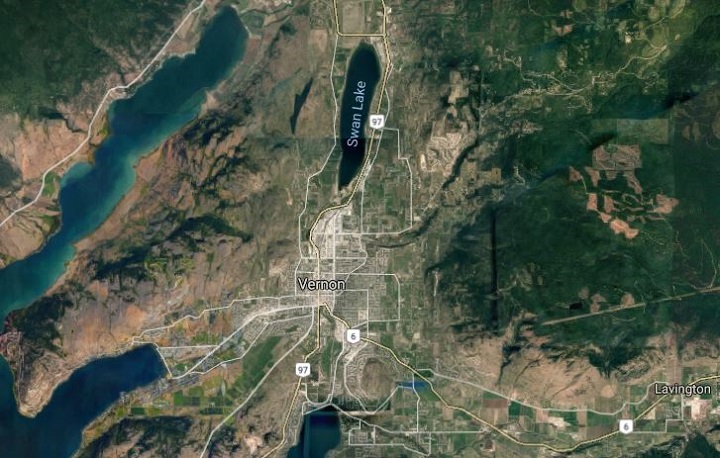A small lake in the North Okanagan has been declared an important wetland habitat by the provincial government.

Long recognized as important for wildlife, Swan Lake is now part of a new wildlife management area to help protect migratory birds, animals and species at risk, the province said in a press release on Wednesday.
“Located just north of Vernon, Swan Lake is an unusually shallow and marshy lake with intact shoreline and undisturbed habitat,” said Doug Donaldson, Minister of Forests, Lands, Natural Resource Operations and Rural Development. “We want to protect it for generations to come, because it is on a major migratory corridor for waterfowl, with over 200 bird species found in the area, as well as mammals and amphibians.”
The province says the 471.5-hectare wildlife management area will help ensure locals and visitors alike can continue to enjoy a healthy environment, recreation opportunities and natural attractions.
“Swan Lake is a fantastic natural asset for our region being both an extremely important habitat for wildlife, particularly waterfowl, and a wonderful little lake for various kinds of recreation,” said Bob Fleming of the Regional District of the North Okanagan. “The RDNO looks forward to working closely with the province to protect and preserve all that Swan Lake has to offer to our region.”

Get breaking National news
According to the provincial government, the designation will also support:
· development of a management plan for the area that encourages conservation and shared stewardship;
· the engagement of local First Nations and stakeholders on conservation and management issues;
· additional legal tools for the ministry to consider in conservation management; and partnership opportunities for research and education.
A 3.2-hectare conservation property on the eastern shore of the lake owned by The Nature Trust of B.C., and currently leased to the province, will be included in the new wildlife management area. The wildlife management area will complement the existing Swan Lake Nature Reserve Park at the south end, which includes lands owned by the Regional District of North Okanagan and Ducks Unlimited Canada. There are walking trails, interpretive signs and a bird blind in the regional park.
“The Nature Trust of British Columbia purchased our Swan Lake property in 1993, with funding support from the Province and local conservation organizations,” said Jasper Lament of The Nature Trust of B.C. “Swan Lake was first proposed for habitat protection back in 1922. Almost 100 years later, we are delighted to work with our partners to establish a large conservation land complex at Swan Lake.”
“As one of the conservation partners, Ducks Unlimited Canada is pleased with the designation of Swan Lake, as it strengthens the habitat protection and management of the site for the many waterfowl and other species that rely on the area throughout the year,” said Dan Buffett, manager of B.C. operations for Ducks Unlimited Canada. “Swan Lake is an important nexus for wildlife migrating through or breeding in the Okanagan, and an important link in the chain of habitats that allows wildlife to co-exist in an urbanizing valley. We appreciate the work from our many partners including the Province of B.C., First Nations, local governments and neighbouring landowners that made this project possible for the wildlife and the community.”
The wildlife management area lies within the traditional territory of both the Okanagan Nation and the Secwepemc Nation Lakes Division. The lands of the Okanagan Indian Band border the north end of Swan Lake. The band provided support for the wildlife management area proposal.
According to the Province of B.C.:
· Wildlife management areas help to meet government’s mandate to sustainably manage B.C.’s ecosystems, rivers and lakes, improve wildlife management and habitat conservation, and collaborate with stakeholders.
· With this new designation for Swan Lake, there are now a total of 30 wildlife management areas in B.C., ranging in size from the 17-hectare Coquitlam River, to the 122,500-hectare Todagin in northwestern B.C.
· Together, these sites encompass more than 246,000 hectares.





Comments